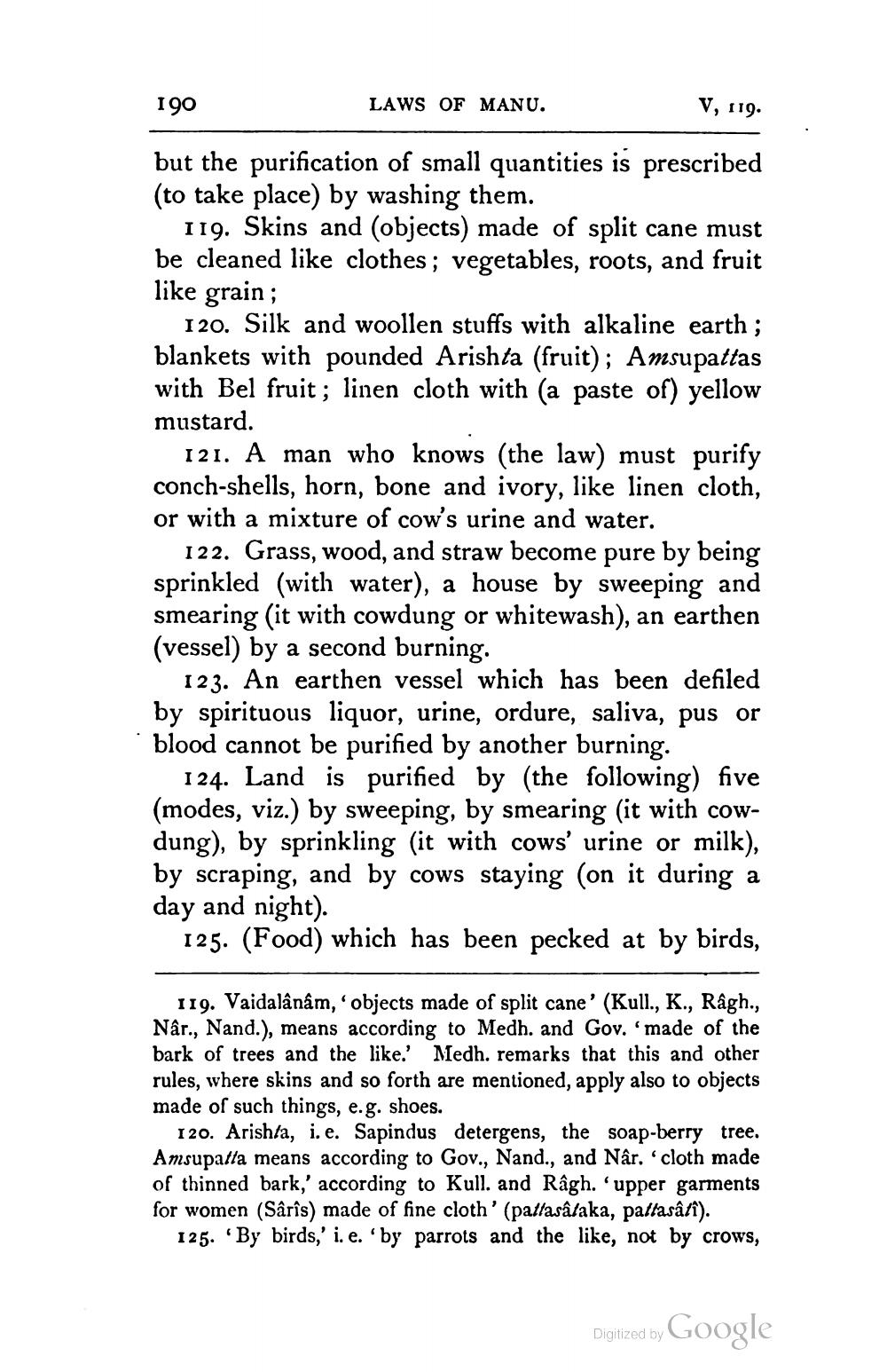________________
190
LAWS OF MANU.
V, 119.
but the purification of small quantities is prescribed (to take place) by washing them.
119. Skins and (objects) made of split cane must be cleaned like clothes; vegetables, roots, and fruit like grain;
120. Silk and woollen stuffs with alkaline earth ; blankets with pounded Arishta (fruit); Amsupattas with Bel fruit; linen cloth with a paste of) yellow mustard.
121. A man who knows (the law) must purify conch-shells, horn, bone and ivory, like linen cloth, or with a mixture of cow's urine and water.
122. Grass, wood, and straw become pure by being sprinkled (with water), a house by sweeping and smearing (it with cowdung or whitewash), an earthen (vessel) by a second burning.
123. An earthen vessel which has been defiled by spirituous liquor, urine, ordure, saliva, pus or blood cannot be purified by another burning.
124. Land is purified by the following) five (modes, viz.) by sweeping, by smearing (it with cowdung), by sprinkling (it with cows' urine or milk), by scraping, and by cows staying (on it during a day and night).
125. (Food) which has been pecked at by birds,
119. Vaidalânâm, 'objects made of split cane' (Kull., K., Râgh., Nâr., Nand.), means according to Medh. and Gov. 'made of the bark of trees and the like.' Medh. remarks that this and other rules, where skins and so forth are mentioned, apply also to objects made of such things, e.g. shoes.
120. Arishta, i.e. Sapindus detergens, the soap-berry tree. Amsupatta means according to Gov., Nand., and Nâr. 'cloth made of thinned bark,' according to Kull. and Râgh. upper garments for women (Sârîs) made of fine cloth' (pattasâlaka, pattasâlî).
125. "By birds,' i. e. by parrots and the like, not by crows,
Digitized by Google




